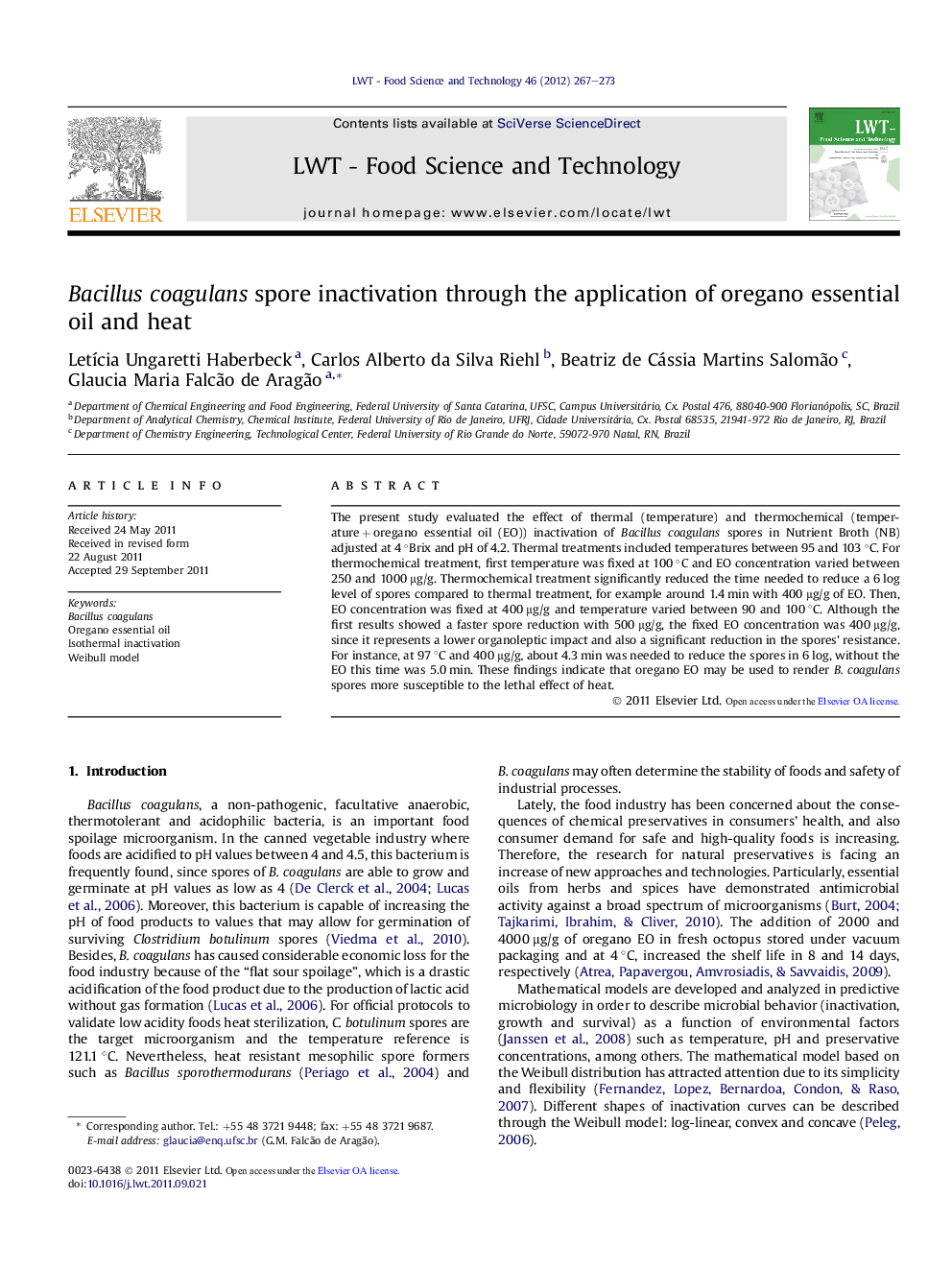| Article ID | Journal | Published Year | Pages | File Type |
|---|---|---|---|---|
| 6405429 | LWT - Food Science and Technology | 2012 | 7 Pages |
The present study evaluated the effect of thermal (temperature) and thermochemical (temperature + oregano essential oil (EO)) inactivation of Bacillus coagulans spores in Nutrient Broth (NB) adjusted at 4 °Brix and pH of 4.2. Thermal treatments included temperatures between 95 and 103 °C. For thermochemical treatment, first temperature was fixed at 100 °C and EO concentration varied between 250 and 1000 μg/g. Thermochemical treatment significantly reduced the time needed to reduce a 6 log level of spores compared to thermal treatment, for example around 1.4 min with 400 μg/g of EO. Then, EO concentration was fixed at 400 μg/g and temperature varied between 90 and 100 °C. Although the first results showed a faster spore reduction with 500 μg/g, the fixed EO concentration was 400 μg/g, since it represents a lower organoleptic impact and also a significant reduction in the spores' resistance. For instance, at 97 °C and 400 μg/g, about 4.3 min was needed to reduce the spores in 6 log, without the EO this time was 5.0 min. These findings indicate that oregano EO may be used to render B. coagulans spores more susceptible to the lethal effect of heat.
⺠Oregano essential oil as an antimicrobial agent against spores of Bacillus coagulans. ⺠Nutrient broth adjusted to 4 °Brix and pH 4.2, added with oregano essential oil and inoculated with the spores. ⺠Oregano essential oil decreased the time to reach 6 decimal reductions of B. coagulans during thermal treatment.
